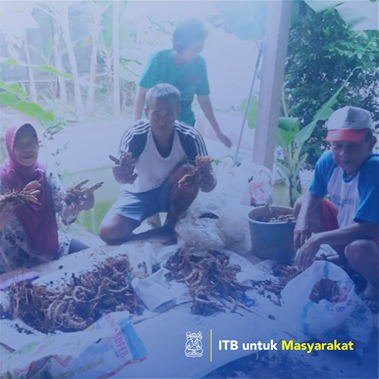

Muhamad Insanu
The use of drug plants in Indonesia is increasingly increasing. This is supported by government policies regarding traditional medicine and also increasing research on the efficacy of traditional medicine. This is also supported by the growth of the traditional medicine industry (IOT) or in the form of smaller business entities such as traditional medium-sized drugs (UMOT). Of the many products circulating in the market more than 50% made from plant raws from the Zingiberaceae tribe, for example, it is turmeric, ginger and ceramulawak. Unfortunately in the market the raw material produced so far is still diverse due to the absence of a standardization process at the planting and post-harvest phase. This results in the effects produced by the plant it is not consistent. To avoid this, efforts need to be held for drug plants. This drug cultivation training has been conducted on the previous community service program, namely the medicinal plants from the Zingiberaceae tribe in the Ujung Ujung Ujung Berung "area. Training activities carried out on August 27, 2016, on Jl Nagrog I No. 10, RT 02 / RW 07 Pasirjati Sub-District Ujungberung District. The material used is the harvest from the 2015 community service activities planting drug plants from the Zingiberaceae tribe in the Ujung Ujung Ujung "area. In these activities, several kinds of medicinal plants include ginger, red ginger, turmeric, joy, mango meeting and white meeting. Planting was carried out starting in November 2015 and harvested in August 2016. From the results of these activities it is known that the best ginger and turmeric plants grow in the area (each produces around 10 kg) while for red ginger, joyak, mango meeting, White Gathering only produces around 2-3 kg of harvest. At the meeting was explained how the process of processing the harvest is to produce a simplicia that is in accordance with the Standard. The processing process includes cutting, drying and particle size reduction.
Implementation of social care activities in the form of education / counseling / mentoring
The people who live in the Nagrog area of ​​Ujung Berung Subdistrict, most have jobs as farmers or gardening. Plants that are usually planted are food crops such as rice and vegetables. To increase the value of more than the public garden, plantation crop diversification is needed by using medicinal plants.